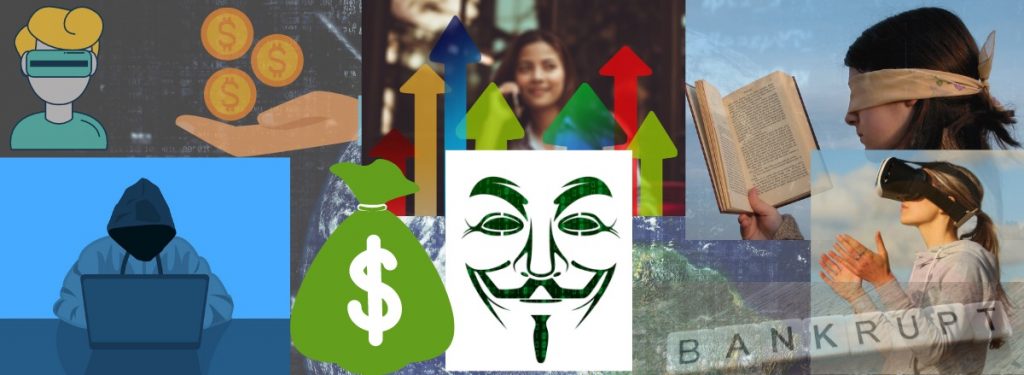Despite the criticality of the financial and money skills, it is alarming to note that Personal Finance and Financial Literacy are not part of most of the mainstream school curricula.

Reserve Bank of India (RBI) observed Feb 8th to 12th as the Financial Literacy Week. The bank has been conducting this every year, focusing on specific themes. The theme selected for the current year was “Credit Discipline and Credit from Formal Institutions“. As a part of this, RBI organized awareness programs for organizations and the public, directly as well as through the banks. The Financial Literacy Week initiative is a part of a broader strategy – National Strategy for Financial Education (2020-25). But one may wonder to what extent such efforts are making a real difference on the ground.
The Organization for Economic Co-operation & Development (OECD) defines Financial Literacy as a combination of financial awareness, knowledge, skills, attitude and behavior, necessary to make sound financial decisions and ultimately achieve individual financial well-being (OECD, 2012). They consider the lack of Financial literacy to be one of the biggest risks in the future, for individuals, organizations, societies and nations. This risk has no correlation with the level of economic development or even the educational and general literacy levels of individuals or societies, with some of the richest nations in the world suffering from this the most.
There are several trends in the world that make Financial Literacy critical in the current times.
1. Complex Financial Landscape: The Financial Landscape is getting more and more complex and sophisticated, with ever increasing choices for savings, investment etc. Making uneducated or bad choices can severely impact the financial future of the citizens.
2. Consumers shouldering more financial decisions: The new normal in the financial world expects consumers to take most of the financial decisions. An example is with the retirement funds – which used to be typically managed by employers or governments; but now the individuals are increasingly required to make the investment decisions for these funds.
3. Weaker safety nets: In most of the countries, government safety nets are getting weaker and individuals are expected to provision for their future needs.
4. Ever increasing scams and frauds: The complexity of the financial world gives rise to many sophisticated scams and frauds. The victims of these frauds are no longer limited to the pensioners and the uneducated. A 2019 survey (ref below) jointly conducted by Stanford University and others found strong correlation between Financial Literacy and the vulnerability to such scams.
Several surveys have pointed to grave gaps in the financial condition and financial understanding of individuals, in most countries in the world. It has been reported that less than half of the American citizens have provisioned at least some minimum savings for situations like healthcare and unemployment contingencies. In another related survey by SCORE, a business mentor network, it was found that about 82% of the small businesses failures are due to bad financial management.

Despite the criticality of the financial and money skills, it is alarming to note that Personal Finance and Financial Literacy are not part of most of the mainstream school curricula. At the same time, money is also a topic hardly discussed (and often a taboo subject) at homes. Thus our youth have no ways to learn the critical skills in this domain and understand the related best practices. This is especially crucial for the emerging economies where the financial situation is changing rapidly and there are ever increasing number of youngsters being exposed to the formal financial channels for the first time.
More than just personal financial responsibility, Financial Literacy also have implications on the people’s core civic rights and responsibilities. A research paper in the Journal of Curriculum studies proposes to extend the definition of Financial Literacy to include “citizens’ understanding of the financial sector and government finances“. The paper articulates that democratic and economic wellbeing require voters whose financial understanding creates functional (rather than dysfunctional) incentives for the governments and the leaders. In other words, voters should be financially literate so that they can see through the misleading narratives of their elected representatives in the matters of money.
But as the primary accountability for the financial health of these respective domains rests with these offices and leaders, some argue that the current system has no incentives for them to foster genuine awareness among the citizens and thus to bring in the essential transparency. This is being testified by the recent surge in populist economic policies and and the usage of noneconomic narratives in articulating economic policies, across the world. This is something that needs to be critically evaluated and any conflict of interest in this matter needs to be removed.
Bibliography
1/ National Strategy for Financial Education (2020-25) – a report (Reserve Bank of India): https://rbidocs.rbi.org.in/rdocs/PublicationReport/Pdfs/NSFE202020251BD2A32E39F74D328239740D4C93980D.PDF
2/ NFCC 2020 Consumer Financial Literacy Survey
https://www.nfcc.org/wp-content/themes/foundation/assets/files/NFCC_Discover_2020_FLS_Datasheet%20With%20Key%20Findings_Clean.pdf
3/ Stanford University Survey on Financial Frauds
https://longevity.stanford.edu/wp-content/uploads/2019/09/ScamTrackerIssueBrief-ExposedToScamsReducedFile.pdf
4/ Davies, Peter. “Towards a Framework for Financial Literacy in the Context of Democracy.” Journal of Curriculum Studies, vol. 47, no. 2, 2014, pp. 300–316., doi:10.1080/00220272.2014.934717.
Sankar is the founder and CEO of Silver Pi.
He had worked in Banking and Technology for about three decades before switching to Education. He is an Electrical Engineer by training, with a career in Technology and Banking across Japan, USA, Singapore and India.


2 comments